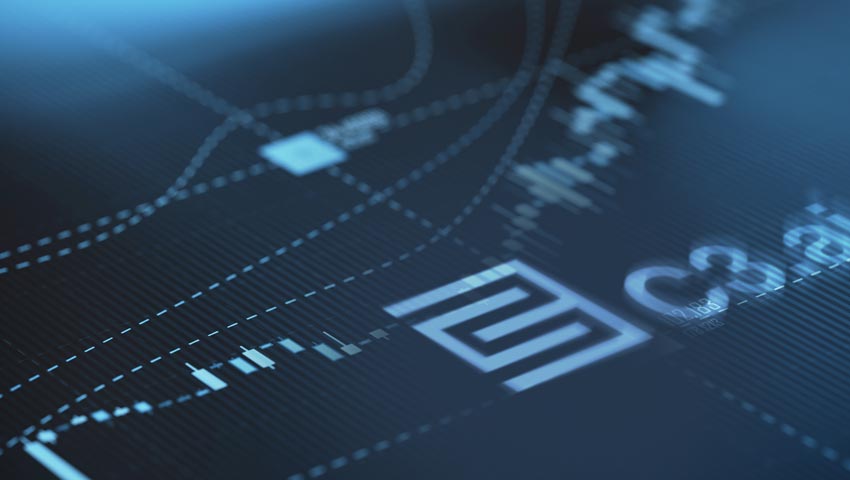Using artificial intelligence (AI) to optimize oil and gas operations has been a goal of the energy industry for nearly a decade. Enticed by the prospects of AI and machine learning to predict problems before they occur—and the possibilities for optimizing production, sourcing, staffing and safety—oil and gas companies around the world have made large internal investments and launched trials and pilots to leverage this technology.
Many of these attempts have yet to impact a company’s bottom line. Why? Because they’ve been unable to collect all the data in one place; adapt culturally from manual decision-making to machine learning-assisted processes; secure the right talent; or achieve scale. Success in bypassing these roadblocks requires collaboration.
Petronas, Malaysia’s integrated oil and gas company, recently announced an extensive expansion of digital programs to better tackle AI at scale.
“Petronas addresses the energy demands of today by leveraging the power of digital as an accelerator, technology as a differentiator and data as an asset,”
– says Petronas Project Delivery and Technology Senior Vice President Samsudin Miskon.
“Petronas is committed to accelerated digital transformation that delivers productivity, efficiency, visibility, safety and performance. The predictive intelligence of AI is critical to meeting these needs, and this is only possible with AI that drives outcomes at pace and scale.”
How the DIY energy AI approach has evolved
Petronas is not alone in initiating significant programs before partnering with proven platform providers to launch a scaled AI approach. As companies seek to capitalize on technology breakthroughs to deliver oil and gas more efficiently, safely and sustainably, energy behemoths from West to East are now taking a more partnered approach to their digital transformation programs. Companies such as Chevron and BP have made announcements around AI programs to extract data from drilling reports and to reduce emissions.
Saudi Arabia, similarly, has prioritized IR 4.0 (the Fourth Industrial Revolution) in its In-Kingdom Total Value Add (IKTVA) program, which aims to increase localization of oil and gas suppliers. Saudi Aramco’s 4IR Center is dedicated to developing cutting-edge technology, and AI solutions are now being deployed at sites including Uthmaniyah, one of the world’s largest gas plants.
The progress in AI adoption is notable, but the issue of scaling domain-specific solutions remains. Many of these initial projects take place as trials or pilots at particular plants or fields. The test comes when businesses are tasked with scaling initial pilots across operations enterprise-wide.
“How many companies have actually gone past the pilot stage and implemented enterprise AI solutions at scale?”
– asks Ed Abbo, President and Chief Technology Officer at C3 AI.
It’s relatively easy to create a one-off AI model, but very difficult to train, deploy and operate millions of models that continuously aggregate and analyze data from numerous disparate data sources and sensor networks across hundreds of thousands of assets and systems. Industry failure rates for enterprise AI applications highlight the fact that it’s nearly impossible to implement these predictive applications and achieve scale without a combination of the right AI application platform to simplify technology and oil and gas domain expertise.
Why an AI-enabled oil company boosts efficiency and automation
This is where BakerHughesC3.ai (BHC3), combining Baker Hughes’s energy technology and deep domain expertise and C3 AI’s software suite, comes in. A DIY approach to developing AI applications can take 18 or more times longer than using a proven, pre-integrated platform like that offered by BHC3, an independent study commissioned by C3 AI showed. Building applications using this platform accelerated development by a factor of 30 (three days,
compared to 90 days), and required drastically less development code (14 lines of code, compared to more than 3,000) “while reducing delivery risk” compared to alternate approaches, the report concluded.[1]
The advantage of a partner goes beyond domain expertise and technology. Petronas was looking to improve the reliability of more than a dozen energy assets in critical operations—by improving maintenance programs for gas turbines, and by improving the reliability of control valves with early detection of anomalous conditions, preventing downtime. The company announced partners with energy technology, data science and AI experts at Baker Hughes and C3 AI to collaborate on projects focused on improving reliability of energy assets in critical
operations.
“So the traditional approach has been to say, ‘OK, we want to digitally transform our organization, let’s build a big digital function, we’re going to hire a bunch of data scientists and we’re going to build this thing ourselves,”
– says Abbo.
“That talent is really hard to come by, because there are a lot of companies vying for those same qualified software engineers and data scientists. But the build-it-yourself approach also significantly underestimates the level of investment and expertise required to successfully build a common AI design and operating platform to scale and maintain it in production enterprise AI applications.”
How petro manufacturing AI improves performance and reduces downtime
Global manufacturers are facing unprecedented challenges from supply chain disruptions, significant demand fluctuations, reliability issues and heightened customer expectations. In addition to dealing with pressures on profitability and growth, they are also battling new classes of nimble, digital-native competitors. AI presents an opportunity to bring together data — from demand forecasts, customer orders, production costs and parts inventory — and improve production schedules to better match forecasted demand.
Koch Industries, the second-largest private company in the United States, holding a diverse portfolio of subsidiaries including energy companies that specialize in refining, manufacturing, distribution and chemicals, has made progress developing AI programs. Acceleration and growth at the scale required to meet business needs meant taking a new approach. In 2020, the company announced standardization of AI programs on the C3 AI Suite, giving access to Koch Industries companies including Georgia-Pacific, Flint Hills Resources and Molex.
“We recognize the need to leverage AI in our ongoing transformations, and while we’ve made progress by taking the do-it-yourself approach, we also realized we needed to go faster and scale across our diverse enterprise,” said Jim Hannan, EVP and CEO of Enterprise for Koch Industries, in a June 2020 press release. "The C3 AI Suite allows us to take advantage of our existing investments while accelerating our AI transformation so Koch companies can better serve their customers.”
Fueling transformation — and transition
The International Energy Agency (IEA) has stated that efficiency will be key in meeting the world’s decarbonization goals, representing 37% of total emission reductions needed to meet the Paris Agreement goals. Utilization of data to drive these results is no longer a choice, but a matter of survival.
“The energy industry is at a unique inflection point,” says Abbo. “Leading operators are fundamentally changing their business models to take advantage of new opportunities from the energy transition. To survive, companies will need to activate massive amounts of data to inform near real-time decisions, that’s where AI comes in.”
View source version on Bloomberg.com



